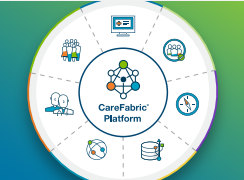Barriers and gaps in care often prevent the most vulnerable individuals from receiving the proper services, especially for those experiencing behavioral health issues. Adopting a person-centered and integrated approach to care delivery not only works to improve health outcomes for all consumers, but can help reduce crises, unnecessary incarceration or hospital visits, and recidivism rates.
In this recent webinar, a panel of experts discuss how collaborating with multiple organizations at the state and community level can help facilitate a more person-centered approach to care. Panelists included:
Dr. Parks served as the moderator and began the discussion by touching on several current and upcoming regulatory changes. New developments in 42 CFR Part 2 and HIPAA regulations, as well as new ONC rules currently being implemented, will affect what organizations are allowed and required to do in regard to information sharing. Not only will these changes broaden data exchange capabilities, they will also offer better protection and more easily enforced financial penalties.
“This is a rapidly changing environment,” Parks said. “Over the next 12 months, all of us will need a review of our confidentiality regulations, our procedures, policies and forms because that ground has been shifting under us.”
While organizations must work through these regulatory changes, they are moving the industry in the right direction. A large population of individuals who struggle in reoccurring crisis situations are depending on leaders to maximize the opportunity to responsibly share information, exchange health data and coordinate care.
Tennessee Department of Mental Health and Substance Abuse Services works to improve coordination through various partnerships
The Tennessee Department of Mental Health and Substance Abuse Services acts as the state’s substance abuse treatment authority. Within the department is the Division of Hospital Services, which oversees four state operated Regional Health Institutes (RHMI). The hospitals are scattered throughout Tennessee, with a total of 577 inpatient beds.
A new CMS Condition of Participation (CoP) mandated that hospitals make a “reasonable effort” to transmit admission discharge and transfer data, with the goal of enhancing the treatment, care coordination and quality improvement for all patients. The Tennessee Department of Mental Health and Substance Abuse Services decided it was not only going to achieve reasonable effort, but also improve care delivery for the individuals they serve. In order to meet these new CMS standards and achieve new care delivery goals, the department is teaming up with Netsmart, the Tennessee Hospital Association and Audacious Inquiry to leverage data sharing technologies and design integrated workflows to better coordinate care.
First, the RMHI collects admission, discharge or transfer (ADT) data using the Netsmart electronic health record (EHR), myAvatar. Once ADT data is entered, a form within the EHR sends an event trigger via HL7 directly to the Tennessee Hospital Association. After the association obtains that info, Audacious Inquiry sends a real-time message to the primary care provider, specialty clinics, or to any other subscribed providers or individuals the consumer has identified.
The ability to share the consumer’s health data between providers and disparate systems allows clinicians to see the whole picture of the individual’s health journey and make more informed decisions at the point of care. The Tennessee Department of Mental Health and Substance Abuse Services plans to go live with this partnered workflow in March 2021, with the goals of coordinating medical and psychiatric care, improving patient outcomes, and reducing inpatient hospitalizations and length of stay, among other potential crisis-related quality metrics.
Care coordination tools in action: Missouri Coalition for Community Behavioral Healthcare
Data integration is a major player in Missouri Coalition for Community Behavioral Healthcare’s approach to care delivery. The agency uses its Coalition Data Warehouse (CLIVE) and the Netsmart CareManager™ solution as its care coordination tools. CareManager, which collects data from 11 distinct EHR systems across 34 different organizations, aggregates a variety of population health management information, including program assignments, Medicaid eligibility, metabolic screening data, ER and hospital visits, as well as claims data from the state.
“The whole purpose of the CareManager tool is to allow our providers to better coordinate care by bringing as much information as possible into one system,” Crawford said. “By pulling all the data into one place, you can see a much fuller picture. This allows our provider network to spend more time helping the individual instead of searching for information.”
The Missouri Coalition recently began piloting CareManager with their Community Mental Health Liaisons (CMHLs), who assist law enforcement and courts to link individuals with behavioral health needs to appropriate services. Within the solution, liaisons currently have access to client demographics, treatment episodes, Medicaid claims and eligibility, among other health-related or social determinants of health documentation.
Often times clients are going from one program to another or one agency to another, causing a lot of crossover. CMHLs are able to login to CareManager and search for clients to view any information available within the system, allowing them to coordinate services, facilitate referrals and make informed decisions at the point of care. In addition, having the liaisons report to the state through the solution has proven easier, more efficient and increased the data integrity.
In addition to CMHLs, other programs leveraging CareManager include CMHC healthcare homes, Emergency Room Enhancement (ERE), Disease Management Outreach and Rehabilitation Teams. Moving forward, the coalition hopes to have as many of their programs as possible on the single care coordination system.
Closing the revolving door
Parker and Reynolds wrapped up the webinar by discussing the importance of supporting the whole person through a crisis. In some cases, many people enter crisis services through law enforcement interaction today. But in a lot of instances, people are coming in through a call line, which is where the 988 line will play such an impactful role.
When someone comes through a call line, it’s essential to get them connected to the right responder who can find which programs and referrals they are both eligible for and have room for new participants. What often gets missed is what happens after the individual leaves the program.
“We need to ensure that warm hand off from when someone is leaving that program to get into the right, ongoing care,” Parker said. “It’s about not only connecting to providers, but also addressing any social determinants of health to make sure their basic needs are covered.”
This supportive and holistic approach to care helps us close the revolving door, meaning these same individuals stop coming through without getting the services they need.
Overall, when aiming to positively impact the crisis continuum, organizations must first understand and implement care coordination tactics, instigate community provider collaboration and discover benefits of population health management tools and data analytics.
The webinar was concluded by a Q&A session. Watch the full discussion here.








